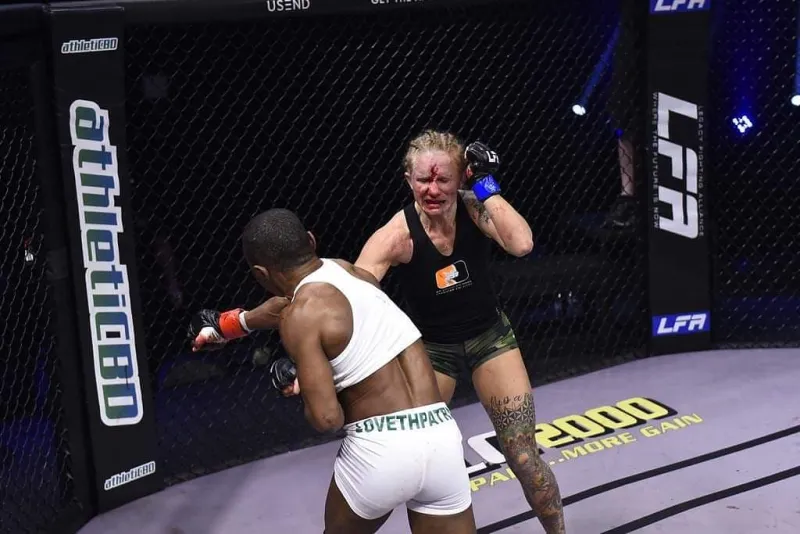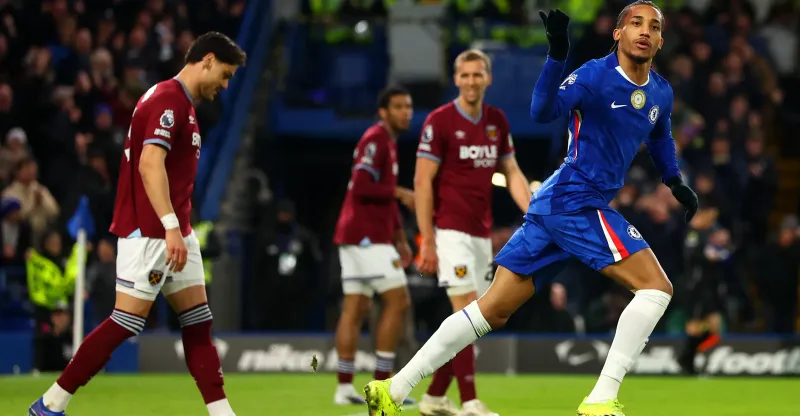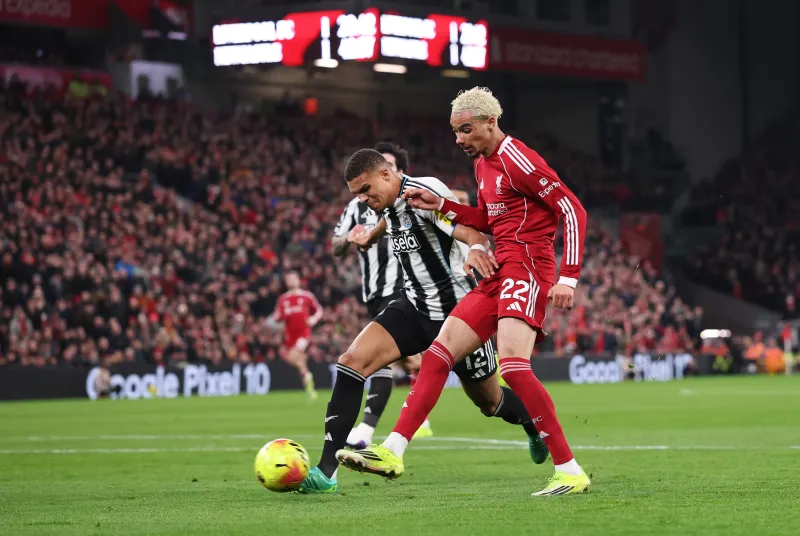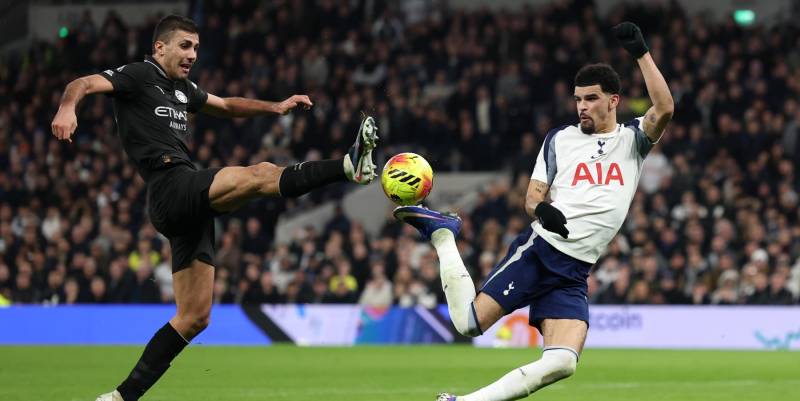AL KHOR, Qatar — The drums kept on beating. The whistles kept on shrieking. Morocco’s players kept on coming, again and again, their legs burning and their lungs heaving, as they raged against the dying of the light. At the end, Morocco had run out of road. At no point, not for a second, did it run out of fight. The World Cup, then, will culminate in the sort of blockbuster final that both FIFA, its organizer, and Qatar, its host, have craved: Lionel Messi’s Argentina, seeking to deliver arguably the finest player of all time his crowning glory, against Kylian Mbappé, his heir apparent, and France, aiming to become the first nation in half a century to retain the most coveted prize in sports. Today, Gianni Infantino feels very smug indeed. Regardless of which team emerges triumphant on Sunday, though, which story line is reverse-engineered as destiny, on some level this will always be Morocco’s World Cup, the one that made it a trailblazer, a record-breaker, a watermark that will not fade. From this point on, a whole slew of achievements will all be the first since Morocco. It was here that Morocco became the first team from the Arab world to make a World Cup quarterfinal. Then, a few days later, it was here that it became the first African team to extend its run all the way to the semifinals.
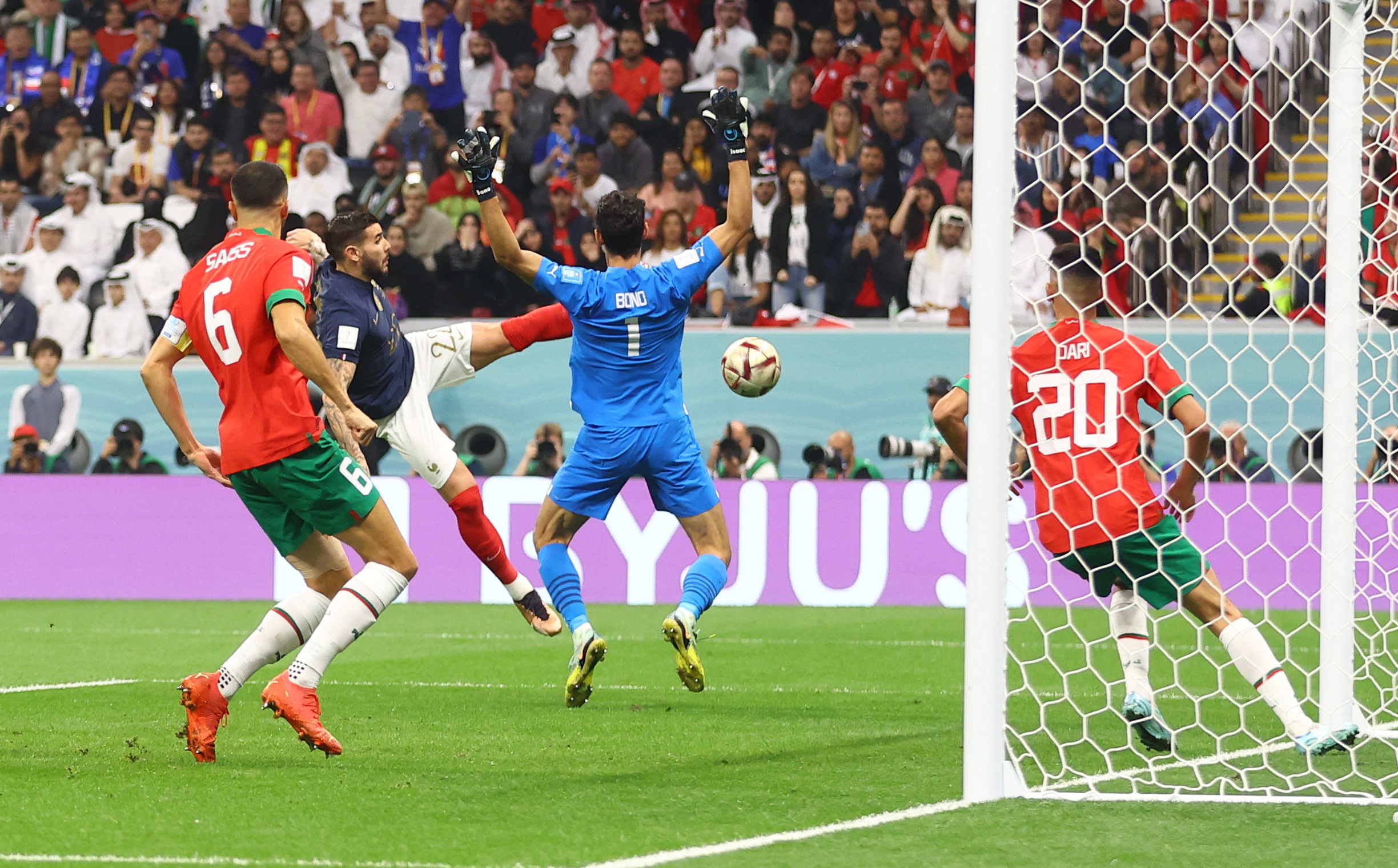
That it could go no further, beaten by France, 2-0, in a breathless, furious game at Al Bayt, neither erases nor diminishes those feats. It does not alter the fact that it was in Qatar where Morocco proved to a “whole generation” that it could produce “miracles,” as its redoubtable goalkeeper, Yassine Bounou, put it. It was in Qatar that Morocco, according to its coach, Walid Regragui, redefined the limits of “what was possible.” If it had needed confirmation of that, it came not long after Randal Kolo Muani doubled France’s lead, effectively sealing its place in the final, breaking hearts not just in Morocco but from Agadir to Amman and Cairo to Cape Town, all of those recent adopters who had adopted Regragui’s team as their standard-bearer. For a moment, the tens of thousands of Moroccan fans who had packed this stadium, this city — so many that, troubled by the sheer number of people arriving in Doha for the semifinal, Qatar Airways abruptly canceled seven flights from Morocco on the morning of the game — stood silent, collecting their thoughts. On the field, their players seemed winded. It did not last long. Slowly, the crowd started to applaud, and then cheer, and then roar, a wave crashing and rebounding around the stadium, gathering strength and fervor, an outpouring of all the gratitude and pride that Morocco has generated over these last three and a half weeks, that had swept them out of the group stage and all the way to the final four, to the cusp of smashing the biggest glass ceiling of all. Even then, Morocco did not seem overawed. Regragui’s players did not wilt against the luster, the experience, the contradictions of this curious French team, simultaneously obviously flawed and smoothly imperious.
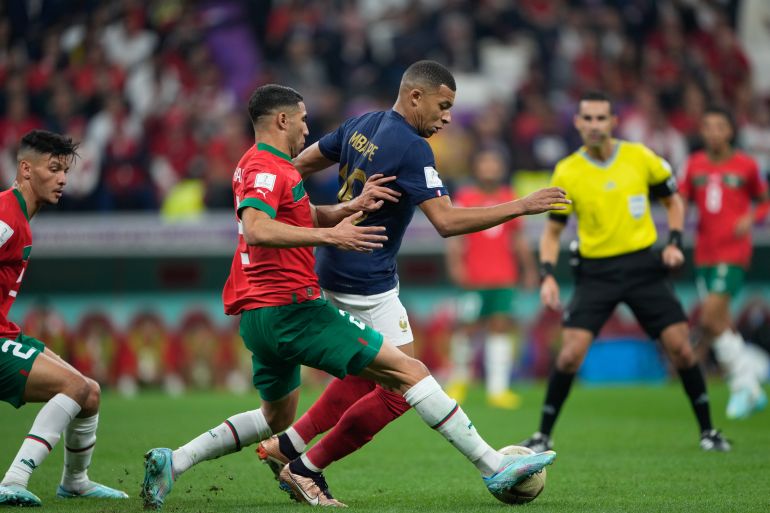
Morocco did not stutter when a single misjudgment, a little excessive zeal from the central defender Jawad El Yamiq, allowed France to prize an opening goal — finished off by Théo Hernandez — after only five minutes. It was the first goal Morocco had conceded to an opponent since the start of the World Cup. Nor were they unnerved by losing three of their first-choice defenders to injury by the start of the second half, the mounting cost of their run this deep in the tournament: Nayef Aguerd in the warm-ups before the game; Romain Saiss after the opening exchanges of the first half; Noussair Mazraoui at the break.
Despite all of that, for vast swathes of the game Morocco troubled and tormented France, the reigning champion, the overwhelming favorite rocking further and further back on its heels. Ibrahima Konaté and Raphael Varane rushed around to put out fires as and when they sparked, trusted more to luck than judgment to keep the Moroccan attacks at bay. Even Kolo Muani’s goal, tapped home from close range with his first touch of the ball, did not draw the sting. The light, then, was fading, but Morocco did not acquiesce. Deep into injury time, all hope almost extinguished, it carved out not one, not two, but three golden opportunities to score, to jar French nerves, to bring its fans — old and new, here and there — one last cause for celebration. They did not, in truth, need it.
At the final whistle, Regragui’s players collapsed on to their backs, all of the air drawn from them. For a while, it was possible to wonder if the tireless Azzedine Ounahi and Sofyan Amrabat, in particular, might need to spend the night there, and make their way home in the morning. After a while, they lifted themselves and formed, for a few minutes, a tight huddle with their teammates, listening as Regragui told them that Morocco’s king, Mohammed VI, was “proud of them, that the Moroccan people were proud of them, that the whole world was proud of this team.” And then, as the applause rang down, they slowly approached their fans. On the edge of the penalty area, they stopped, and one by one they fell to their knees and lowered their foreheads to the grass. Morocco had made it past Belgium and Croatia, Spain and Portugal, illuminating this tournament, inspiring a continent, reshaping the bounds of possibility. Here, though, Regragui and his players could go no further, their journey drawing to a halt far later than they could have imagined, but not quite as far as they might, for a few days, have dreamed. This, then, is where it ends. In the weeks, and months, and years to come, though, that is not how Morocco, or Africa, or all of those countries that have seen in Morocco a reflection of themselves will see it. This World Cup, Morocco’s World Cup, will be remembered, instead, as a beginning.
